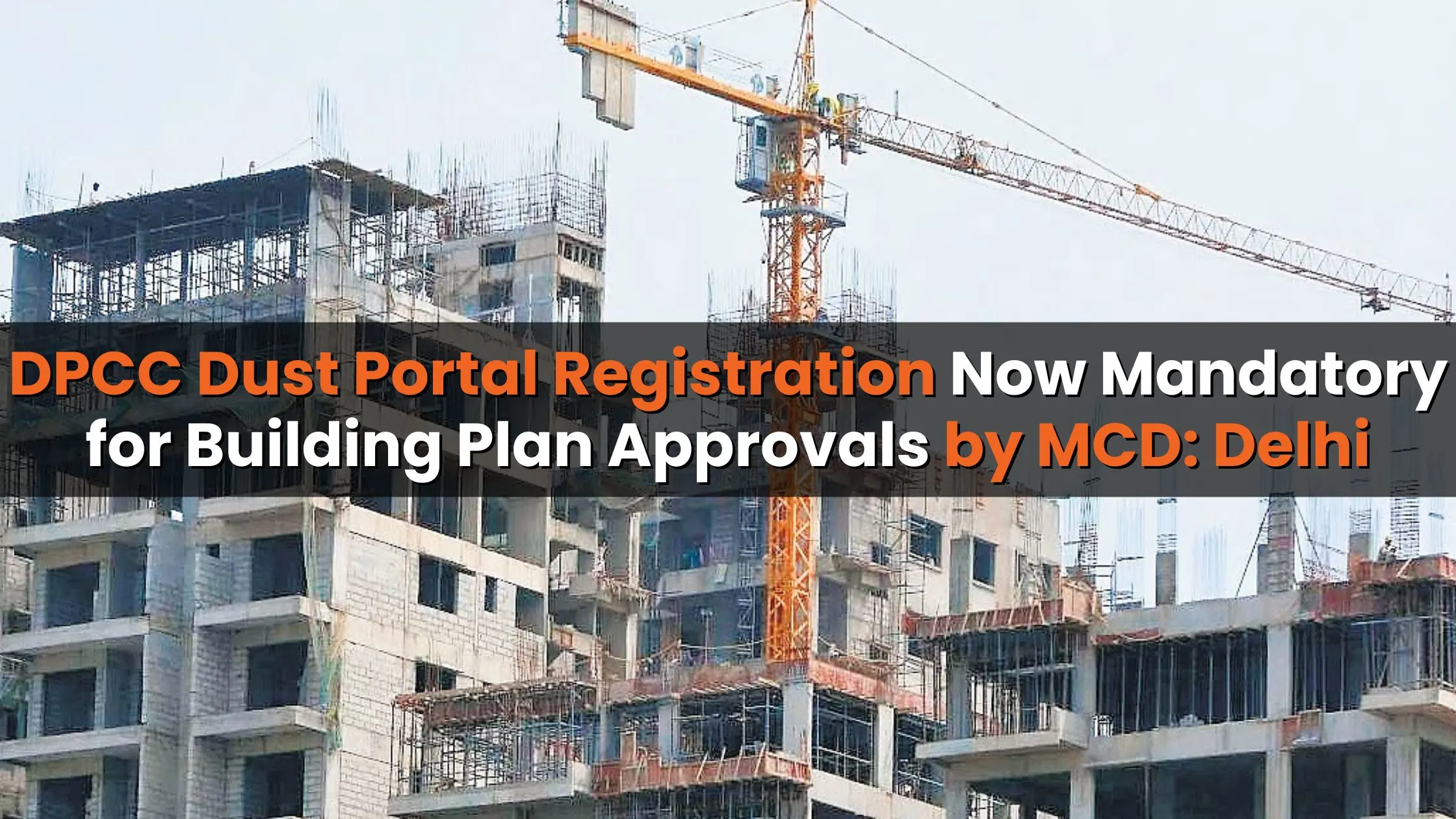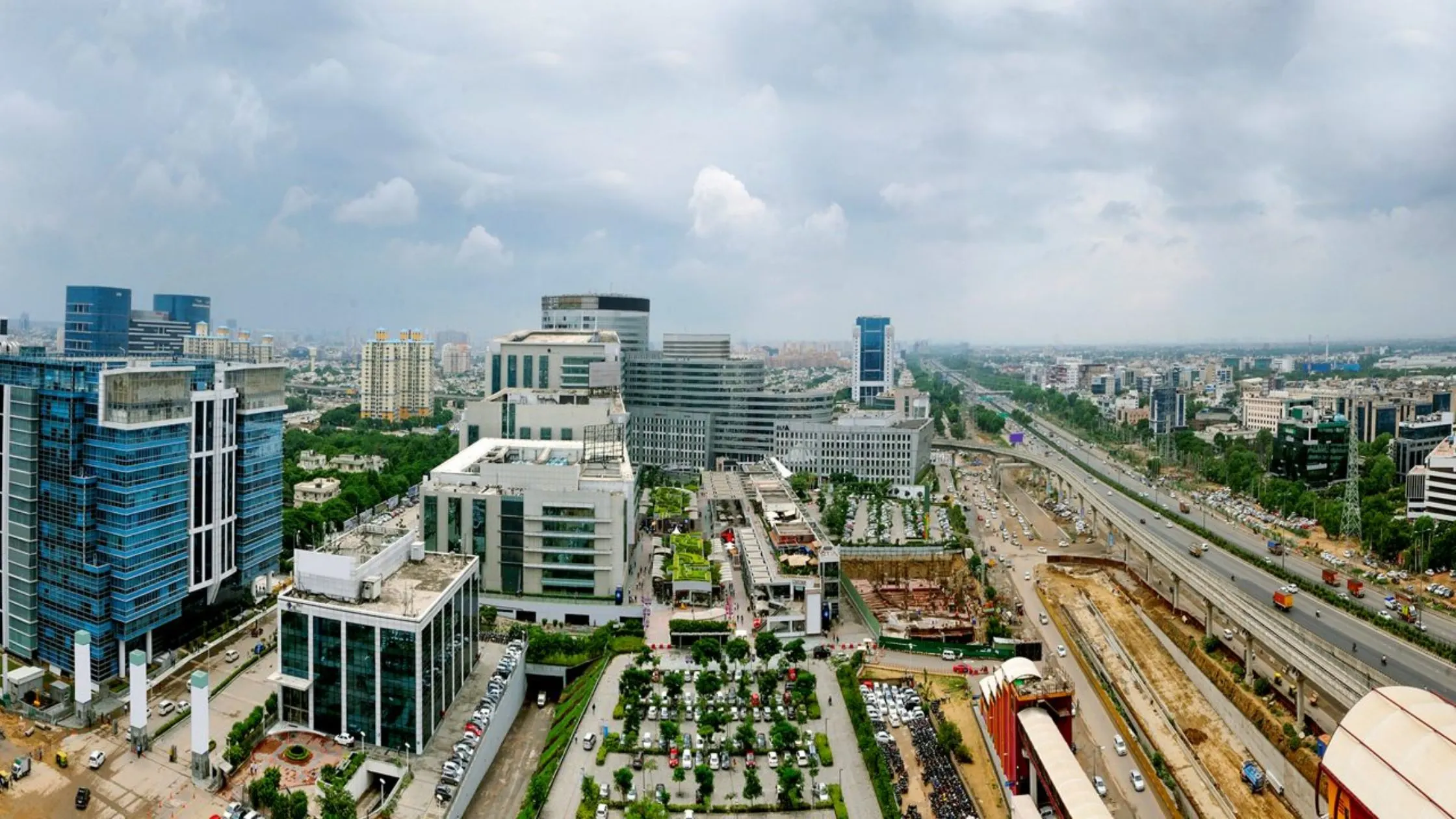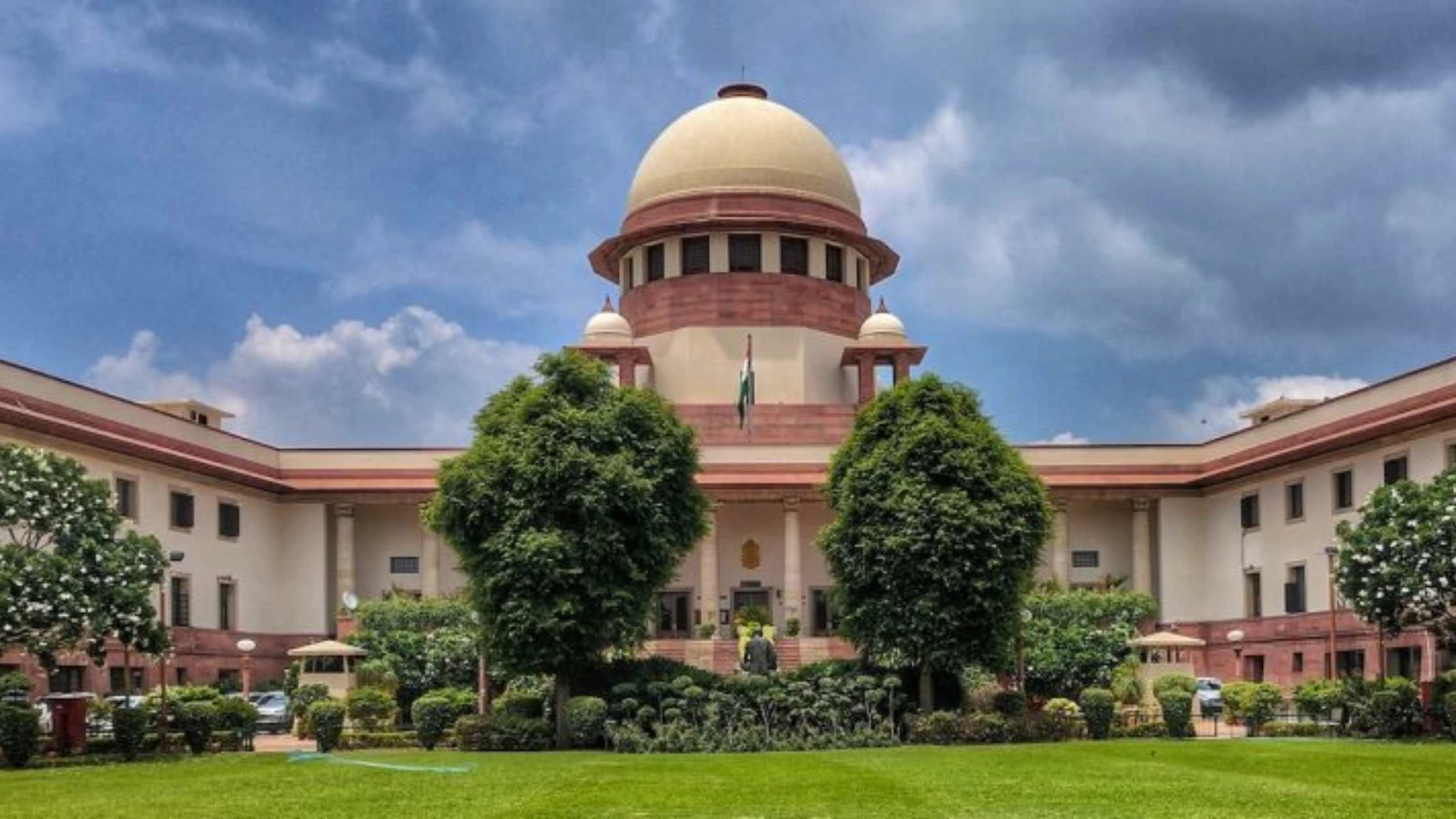Table of Content
▲
Delhi has always experienced high levels of pollution and has traced particulate matter from the air to the construction industry. As part of efforts to control construction dust to improve air quality, the Municipal Corporation of Delhi (MCD) has required that construction and demolition projects register on the Delhi Pollution Control Committee (DPCC) dust portal before getting approval for their building plans. This is part of other measures being taken under the Commission for Air Quality Management's (CAQM) direction to help mitigate dust in the capital.
The New Mandate by MCD
In accordance with the new directive, no building plan will be approved to move forward unless the project is registered on the DPCC dust portal. This applies to ongoing and new projects whose area exceeds a certain threshold. The MCD has incorporated the dust portal with its building layout approval application, so that it can monitor the information for compliance with the ongoing project.
Furthermore, project developers need to upload a self-declaration to the portal every two weeks, as a self-declaration that indicates they are following dust control measures. Self-declaration is critical to maintaining accountability and ensuring that the protocols are implemented and followed to mitigate as much responsibility as possible.
Also Read: DDA Housing Scheme 2025: Affordable Units in Narela and Loknayakpuram
Objectives of the Initiative
The primary aim of mandating DPCC dust portal registration is to reduce the adverse environmental impacts of construction activities. The initiative seeks to:
- Curtail dust emissions that contribute significantly to PM10 and PM2.5 levels.
- Encourage the adoption of environmentally responsible construction practices.
- Promote transparency and efficiency through technological integration.
By enforcing these measures, the MCD hopes to set a precedent for sustainable development while addressing the city’s air pollution crisis.
Mandatory Compliance Measures
Under the new regulations, all construction and demolition sites must adhere to a comprehensive 14-point dust control protocol. Some of the key measures include:
- Deployment of anti-smog guns and regular water sprinkling to suppress dust.
- Installation of wind barricades and proper covering of debris to prevent dust dispersion.
- Use of low-cost Particulate Matter (PM) sensors and 360-degree ‘pan, tilt, and zoom’ (PTZ) video surveillance at construction sites.
- Prompt disposal of waste material and covering vehicles transporting debris.
Furthermore, a display board showing the DPCC portal registration ID is now mandatory at each construction site, ensuring visibility and compliance.
Importance of the DPCC Dust Portal Registration
The DPCC dust portal serves as a centralized platform for monitoring and enforcing compliance with dust control measures. By mandating registration, the MCD aims to:
- Streamline the approval process for building plans.
- Provide real-time data on dust control compliance at construction sites.
- Enhance accountability among contractors and builders.
The portal’s integration with the MCD’s systems underscores the commitment to leveraging technology in combating pollution.
Implications for Contractors and Builders
Contractors and developers will need to comply with the new regulations to obtain their permits and keep them in effect. Not complying can lead to serious penalties and possible denials or cancelling of construction permits. The laws require registration and mandates that all contractors/developers have procedures in place to limit dust, which benefits the environment and prevents a negative public perception towards responsible, sustainable contractors.
The initiative also promotes publicly posted compliance procedures, including the registration ID, which increases transparency and gives the public assurance of actions to limit pollution.
Broader Environmental Impact
Construction dust is a significant contributor to Delhi’s alarming PM10 and PM2.5 levels, which pose severe health risks. The enforcement of DPCC dust portal registration and associated measures can:
- Reduce particulate matter emissions at the source.
- Improve air quality in the city.
- Protect public health by minimizing respiratory and cardiovascular risks associated with pollution.
By prioritizing dust mitigation, the MCD’s initiative aligns with Delhi’s long-term goals for a cleaner and healthier environment.
Also Read: 5% Remittance Tax Proposal by Trump: How It Could Influence NRI Real Estate Investments
Conclusion
The MCD's requirement of DPCC dust portal registration in order to obtain building plan approval is a positive development to reduce construction air pollution in Delhi. The building plan approval process is now being revised to integrate environmental standards into the process and embed sustainability in urban development.
Both builders and contractors must embrace these rules and work together to begin to reduce their impact on the environment, which will not only help reduce air pollution but also make a big leap towards a sustainable and responsible construction industry in the city.
Follow AquireAcers Whatsapp Channel to Stay Updated With The Latest Real Estate News






Ans 1. The DPCC Dust Portal is an online platform managed by the Delhi Pollution Control Committee to monitor and enforce dust control measures at construction and demolition sites in Delhi.
Ans 2. The Municipal Corporation of Delhi (MCD) has made registration mandatory to ensure compliance with dust control protocols and to mitigate pollution caused by construction activities.
Ans 3. All construction and demolition projects exceeding a specified area threshold must register on the DPCC Dust Portal before obtaining building plan approval.
Ans 4. Non-compliance can result in penalties, denial of building plan approval, or the cancellation of existing construction permits.
Ans 5. Project developers must upload a self-declaration every two weeks to confirm adherence to dust control measures. This ensures accountability and regular monitoring of compliance.
Ans 6. The display board ensures transparency and helps the public verify that a site is compliant with dust control regulations.
Ans 7. Penalties may include fines, project delays, or revocation of construction permits, depending on the severity of the violation.
Ans 8. By enforcing dust control measures, the portal helps reduce PM10 and PM2.5 emissions, improving air quality and minimizing health risks associated with pollution.
Ans 9. The initiative supports Delhi’s long-term objectives of reducing pollution, enhancing urban sustainability, and promoting healthier living conditions.
Ans 10. By integrating environmental compliance into urban development, Delhi’s initiative could inspire other cities to adopt similar measures for sustainable construction practices.